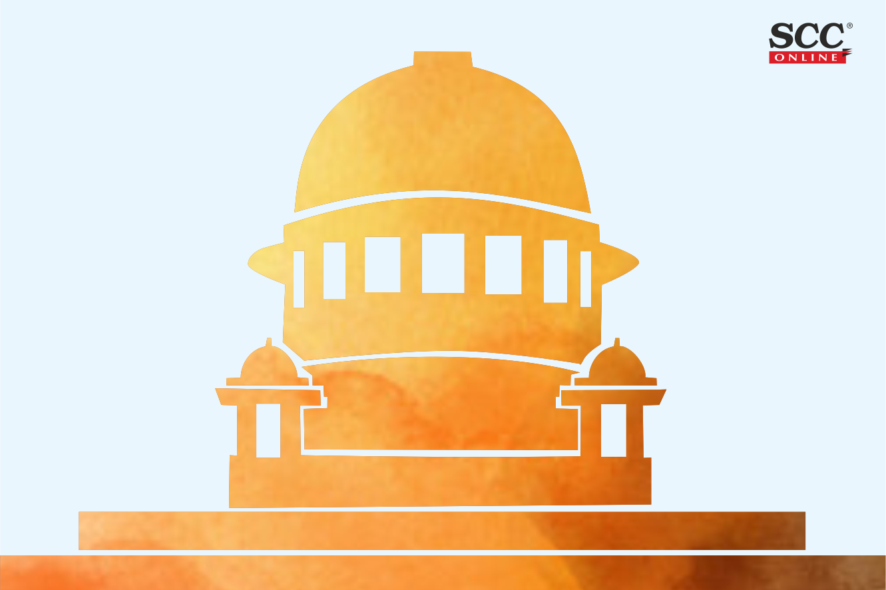Supreme Court: A Division Bench of Sanjay Kishan Kaul and Hemant Gupta, JJ. upheld Rajasthan High Court’s order whereby it had directed that criminal proceedings against the accused−Lower Division Clerk be quashed, for want of requisite sanction under Section 197 CrPC.
The Court held that in cases where a question of requirement of sanction under Section 197 arises, the real test is to check whether the act committed by the public servant was directly concerned with the official duty.
Factual Matrix
The appellant−complainant had filed an FIR wherein she made allegations of cheating, forgery and criminal conspiracy against the accused. The accused was a Lower Division Clerk in the Municipality concerned.
It was the complainant’s case that she and her husband purchased two plots in District Barmer. Out of these, one plot was sold to one Meghram. Further, in the plot purchased in her husband’s name, a residential house and shops were constructed. It was alleged that Meghram tempered with and fabricated the agreement with intention to defraud. Dimensions of the plot which was sold to Meghram were enlarged with intention to grab the land and house occupied by the complainant and her husband. The khasra number was also changed. This was alleged to have been done in collusion with the Executive Officer of the Municipality, a Junior Engineer, and the accused−Lower Division Clerk. The police made investigation made into the FIR and charge sheet was filed.
Appeal
Before the trial court, the accused stated that he was a public servant and what he did in respect of allotment of lease that was executed in favour of Megharam, was done during the course of his official duty. He assailed the charge sheet as the same was filed without obtaining sanction of the competent authority under Section 197 CrPC. This application was dismissed by the trial court. The accused assailed this order before Rajasthan High Court by filing a petition under Section 482 CrPC, which was allowed. Aggrieved, the complainant approached the Supreme Court.
Contentions
The complainant contended that the accused conspired with his superior officers in dishonestly concealing the forgery, and intentionally omitting mentioning the date of the proceedings on the order sheet. Such action of forging documents would not be considered as an act conducted in the course of his official duties and, thus, Section 197 CrPC would not give protection to the accused.
Per contra, the accused submitted that the co-accused officials had already been granted protection, petition filed by them under Section 482 CrPC have been allowed by the High Court and those orders have not been challenged by the complainant or the State. It was argued that two key people involved in entire process have already been granted protection and, thus, the accused who was merely a Lower Division Clerk could not be denied similar relief.
Analysis and Observations
At the outset, the Court noted that Section 197 CrPC seeks to protect an officer from unnecessary harassment, who is accused of an offence committed while acting or purporting to act in the discharge of his official duties and, thus, prohibits the court from taking cognizance of such offence except with the previous sanction of the competent authority.
Relying on Subramanian Swamy v. Manmohan Singh, (2012) 3 SCC 64, the Court observed that:
“Public servants have been treated as a special category in order to protect them from malicious or vexatious prosecution. At the same time, the shield cannot protect corrupt officers and the provisions must be construed in such a manner as to advance the cause of honesty, justice and good governance.“
The Court recorded that the alleged indulgence of the officers in cheating, fabrication of records or misappropriation cannot be said to be in discharge of their official duty. However, such sanction is necessary if the offence alleged against the public servant is committed by him “while acting or purporting to act in the discharge of his official duty”. Placing reliance on State of Maharashtra v. Budhikota Subbarao, (1993) 3 SCC 339, the Court stated that:
“In order to find out whether the alleged offence is committed ‘while acting or purporting to act in the discharge of his official duty’, the yardstick to be followed is to form a prima facie view whether the act of omission for which the accused was charged had a reasonable connection with the discharge of his duties.“
The real question therefore was whether the act committed was directly concerned with the official duty. Applying this test, the Court considered the role assigned to the accused in the alleged conspiracy with his superiors. It was noted that the work assigned to the accused pertained to subject matter of allotment, regularisation, conversion of agricultural land, which fell within his domain of work. In the processing of application of Megharam, the file was initially put up to the Executive Officer who directed inspection which was carried out by the Junior Engineer and only thereafter the Municipal Commissioner signed the file.
The Court also noted that the co-accused Executive Officer and Junior Engineer had already been granted protection. The result was that the superior officers, who have dealt with the file, have been granted protection while the clerk, who did the paper work, was denied similar protection by the trial court even though the allegation is of really conspiring with his superior officers.
Decision
The Court found itself unable to appreciate why a similar protection ought not to be granted to the accused as was done in the case of other two officials. The sanction from competent authority would be required to take cognizance and no sanction had been obtained in respect of any of the officers.
In such a view of the matter, the Supreme Court upheld the order of the High Court quashing proceedings against the accused. The appeal was dismissed. [Indra Devi v. State of Rajasthan, 2021 SCC OnLine SC 487, decided on 23-7-2021]







